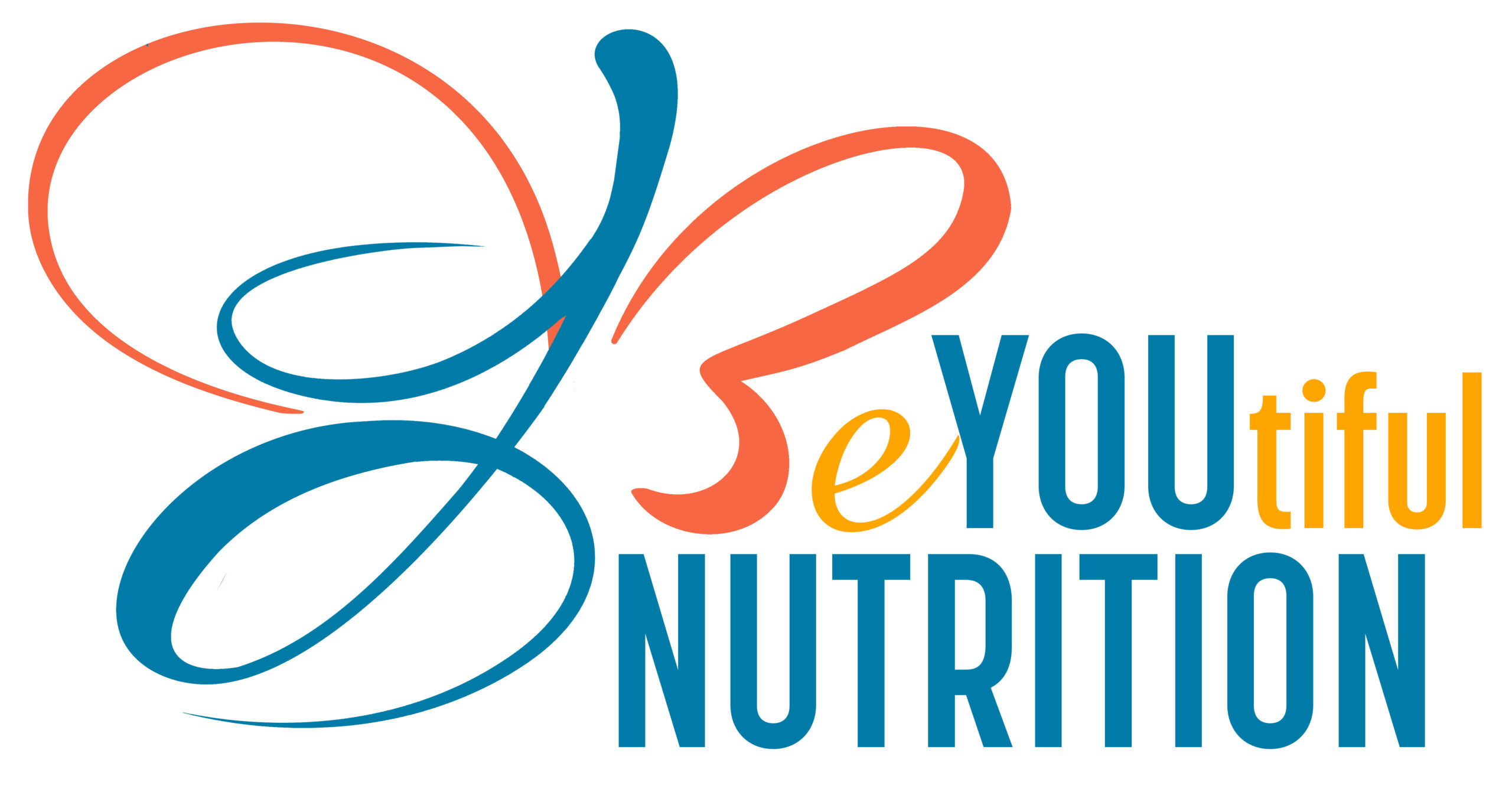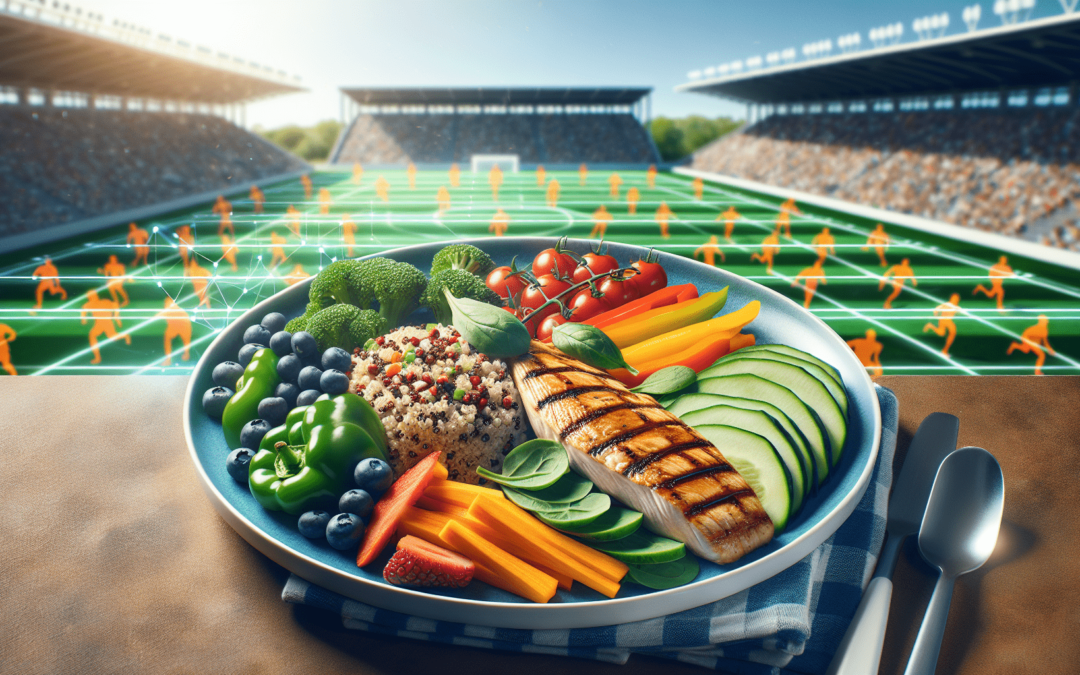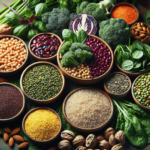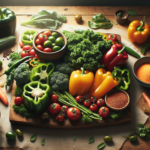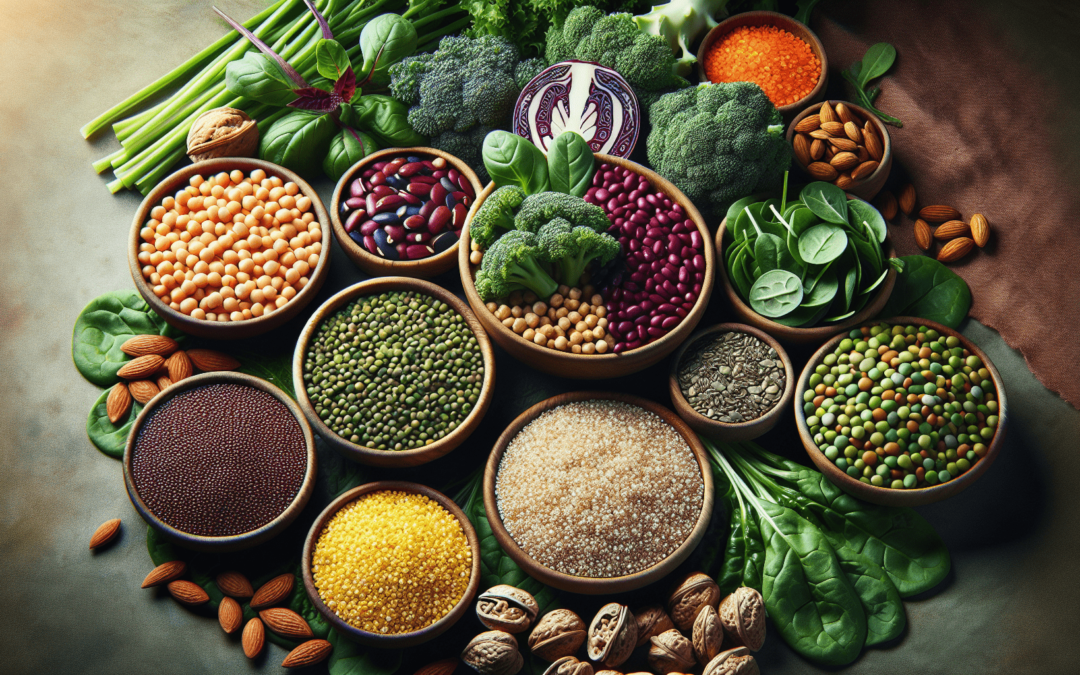
Top 10 Plant-Based Protein Sources For Athletes
What comes to mind when you think about protein? Perhaps images of grilled chicken or steak flash before your eyes. But what if I told you that some of the best protein sources can be found right in nature, ready to fuel your workouts and recovery? If you’re an athlete, understanding and incorporating plant-based proteins into your diet can be a game changer for your health and performance. You’re about to unlock a world that combines nutritious goodness with the power of plants.

Why Choose Plant-Based Protein?
The keen balance of plant-based protein in an athlete’s diet can lead to improved performance, better recovery, and overall health benefits. In many cases, plant-based proteins provide additional minerals, vitamins, and antioxidants, which support your body in various ways.
While animal-based proteins contain higher amounts of certain essential amino acids, plant proteins often come jam-packed with fiber, which is a delightful bonus. Fiber plays a significant role in digestion and overall gut health, so why not make the most of both worlds?
The Myths About Plant Protein
You may have heard that you can’t get enough protein from plants or that it isn’t as effective as animal-based protein sources. Let’s clear that up! With a little knowledge and creativity, you can absolutely meet your protein needs with plants.
Firstly, combining different plant proteins can help you achieve a complete amino acid profile. For instance, pairing beans with rice creates a well-rounded dish bursting with protein goodness. This realization opens the door to endless combinations and meal ideas, creating a diverse and enjoyable eating experience.
Top 10 Plant-Based Protein Sources for Athletes
With the clear benefits and possibilities in mind, let’s jump into the top ten plant-based protein sources capable of becoming staples in your kitchen.
1. Lentils
Lentils are not only one of the most protein-rich legumes but also immensely nutritious. They contain around 18 grams of protein per cooked cup and are a great source of iron, folate, and fiber.
How to Use Lentils:
Lentils are wonderfully versatile; you can toss them in salads, turn them into soups, or serve them as a delicious curry. When preparing lentils, don’t forget to season! Garlic, cumin, and a squeeze of lemon can elevate their flavor significantly.
2. Quinoa
Often dubbed a “super grain,” quinoa stands out with its complete protein profile, providing all nine essential amino acids. With around 8 grams of protein per cooked cup, it’s effortlessly filling.
How to Use Quinoa:
Quinoa can be used in a similar way to rice. Try it in stir-fries, salads, or breakfast bowls topped with fruits and nuts for an energizing start to your day. It also pairs beautifully with black beans for a nutritious meal.
3. Chickpeas
Chickpeas, or garbanzo beans, are incredibly high in protein, with 15 grams per cooked cup. They are also rich in fiber and can help keep you satiated for longer periods.
How to Use Chickpeas:
Roast them for a crunchy snack, toss them into salads, or blend them into a creamy hummus that pairs wonderfully with veggies or whole-grain pita. You can even incorporate chickpeas into your sauces or stews for an extra protein boost!
4. Edamame
Young soybeans known as edamame pack a punch with about 17 grams of protein per cooked cup. They are also an excellent source of healthy fats and antioxidants.
How to Use Edamame:
Enjoy them steamed and sprinkled with sea salt for a quick snack or toss them into stir-fries, salads, or grain bowls for added texture and protein. They also make a fantastic addition to sushi rolls or poké bowls.
5. Tofu
Tofu is a favorite among plant-based eaters and athletes alike, containing around 20 grams of protein per cup. Being versatile and mild in flavor, it can absorb the spices around it wonderfully.
How to Use Tofu:
Stir-fry it, grill it, or incorporate it into soups and smoothies for an added protein boost. Don’t shy away from marinating tofu either; the flavor enhances significantly with a simple marinade of soy sauce, ginger, and garlic.
6. Tempeh
Tempeh is fermented soybeans that offer more protein than tofu, with around 31 grams per cup. It is also rich in probiotics, keeping your gut happy!
How to Use Tempeh:
Slicing it into strips and pan-frying with your favorite Asian-style sauces creates a rich, delectable dish. Add it to salads, grain bowls, or even sandwiches to give a chewy texture and hearty protein.
7. Hemp Seeds
These tiny seeds are a nutritional powerhouse, boasting around 10 grams of protein per 3 tablespoons. They’re also rich in omega-3 and omega-6 fatty acids.
How to Use Hemp Seeds:
Sprinkle them on salads, yogurt, or smoothies for an easy way to add protein. They can also be blended into sauces, or you can use them in baking for a nutty flavor and added nutrition.
8. Chia Seeds
Despite their diminutive size, chia seeds have about 5 grams of protein per two tablespoons. They offer a good source of fiber and omega-3 fatty acids, promoting a healthy heart.
How to Use Chia Seeds:
Chia seeds can be soaked in liquids to create a delightful pudding or added to smoothies for a nutrient boost. They also serve as an egg replacement in baking, making them a fantastic ingredient for vegan bakers.
9. Pea Protein
Pea protein powder offers a convenient way to incorporate protein into smoothies or baked goods, giving you around 20-25 grams per serving.
How to Use Pea Protein:
Add pea protein powder to your shakes for added nutrition post-workout, or use it in pancake or muffin recipes to enhance their protein content. It’s a great option for bodybuilders and endurance athletes alike.
10. Seitan
Seitan is made from wheat gluten and has a meat-like texture, offering about 21 grams of protein per 3.5 ounces. It’s an excellent option for those looking to substitute meat in their meals.
How to Use Seitan:
Sauté it with your favorite spices and vegetables or use it in stir-fries, sandwiches, or tacos for a hearty, plant-based meal.
Balancing Nutrition as an Athlete
It’s essential to understand that while protein is important, a well-rounded diet focuses on whole foods, including vegetables, fruits, whole grains, and healthy fats. The combination of these nutrients allows you to recover better and perform effectively.
To optimize your plant-based protein intake, consider your meals’ timing. Eating a protein-rich meal or snack within 30 minutes after exercising can help in muscle recovery and growth.

Tips for Increasing Protein Intake
You might wonder how you can seamlessly enhance your protein intake throughout the day. Here are some practical tips:
- Snack Wisely: Keep protein-rich snacks handy, like edamame, roasted chickpeas, or high-protein bars.
- Batch Cooking: Prepare lentils, quinoa, and beans in advance to add to your meals throughout the week.
- Smoothie Boosters: Add plant-based protein powder, hemp, or chia seeds to your smoothies for an easy protein boost.
- Mindful Pairing: When focusing on plant-based proteins, combine different sources to ensure you’re getting a variety of amino acids over the course of the day.
Engaging with Professional Guidance
As you embark on your journey to incorporate more plant-based proteins, consider consulting peers like Lila Cornelio, MS, RDN. With years of experience in nutrition, she can help you tailor your meals to fit your lifestyle.
Her personalized advice and culturally inclusive approach can help ensure that your nutritional choices support not just performance but pleasure and sustainability. Workshops and coaching can provide a guided path to success, offering strategies that align with your tastes and cooking skills.
Conclusion
Plant-based proteins are an abundant and versatile choice for athletes looking to fuel their workouts and maintain a balanced diet. From lentils to hemp seeds, each protein source provides essential nutrients that can enhance your health and performance.
By incorporating these top 10 protein-rich foods into your diet, you steer your nutrition in a direction that focuses on wholesomeness while still addressing your athletic needs. Remember, the key is balance and variety, reinforced by expert guidance when needed.
So, as you refine your approach to nutrition, embrace the power of plants; your body will thank you for it! Whether you’re new to plant-based eating or a seasoned pro, there are always new flavors and combinations to discover. Stay curious, stay nourished, and keep enjoying every bite!
